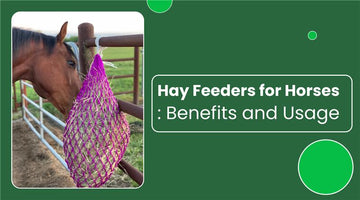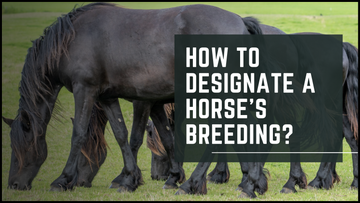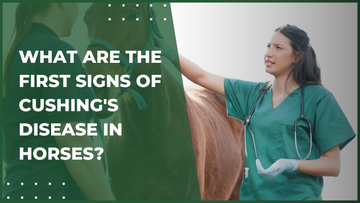Hay feeders help lessen hay wastage, make better feeding habits for horses, and promote their nutrition. If you have one horse or you've got a stable full to ride, the right hay feeders for horses make a difference one way or another.
In this guide, we will explore the benefits, types, and how to use these feeders effectively.
Benefits of Using Hay Feeders for Horses

- Reduced Hay Waste:
The main reason horse owners invest in hay feeders for horses is to prevent wasting hay. Because hay is put right on the ground, not into bags, it usually gets trampled, or soiled. Feeders help to keep hay off the ground so horses are more likely to eat what you provide.
- Improved Digestive Health:
Some feeders, particularly slow hay feeders for horses, facilitate slow and steady ingestion of hay. Slow feeders are designed to take hours to eat, so they mimic the natural behavior of horses of grazing for many hours, avoiding overeating, and supporting healthy digestion.
- Cost Savings:
This saves feed costs over time by reducing wastage and your hay is eaten efficiently. In addition, purchasing high-quality feeders, like covered hay feeders for horses, will protect the hay from anything such as rain and wind, and is another way to add value to your purchase.
- Healthier Eating Posture:
Most feeders are intended to encourage a natural feeding position. If you’re using stall hay feeders for horses or corner hay feeders for horses, the design is what guides your horses to a head-down posture which is better for respiratory health.
Types of Hay Feeders for Horses
Choosing the right type of feeder depends on your horse's needs, stable setup, and feeding routine. Here are some common options:

- Slow Hay Feeders for Horses:
These sorts of feeders are designed to control how fast horses eat. Horses that tend to overeat, or that are known to suffer from colic or digestive issues will find them particularly beneficial. You can buy Slow feed hay feeders for horses, with some designs to choose from such as a ground feeder, hanging nets, etc. These help to get horses to eat slower, thereby preventing bloating and promoting better health.
- Stall Hay Feeders for Horses:
Stall hay feeders for horses work well if you have horses in individual stalls. These feeders are mounted inside the stall to provide ease of hay access and ease of access for animals that eat hay. There are multiple shapes of horse hay feeders for stalls such as wall-mounted and corner.
- Covered Hay Feeders for Horses:
Covered hay feeders for horses are essential when horses are kept outdoors. None of these animals would protect the hay — it is too valuable to leave to the elements! A bonus is that it’s very useful when it’s raining or breezy.
- Corner Hay Feeders for Horses:
Corner hay feeders for horses are designed to fit snugly into a corner stall and use space efficiently while leaving you with a feeding area. For smaller stalls, space is at a premium and these are perfect.
- Hay Bags for Horses:
Hay bags for horses are a great way for owners on the go or owners who want a portable feeding option for their horses. Often, these bags can come in slow feeder designs, which makes for a good travel or show option.
How to Choose the Best Hay Feeder for Your Horse
When selecting the best hay feeder, consider the following factors:

- Horse's Size and Feeding Habits:
Feeders for horses may need to be strong enough for the larger horses and slow feed hay feeders for horses that gulp their food. Decide with a note of what makes your horse different from the other horses.
- Location of Feeding:
If your horses stay mostly outdoors, covered hay feeders for horses will be your best protector from the elements. Stall hay feeders for horses, or corner hay feeders for horses, work best for indoor use.
- Feeding Frequency:
If you’re feeding your horses several times a day, choose a feeder that has enough hay capacity for the day and cannot become wasted. Horse hay feeders for stalls and equine hay feeders are made for frequent use and can assist in keeping feeding efficiency.
The right hay feeders for horses can make a big difference in your horse’s health and your feed costs. If slow hay feeders for horses help with digestion or covered hay feeders for horses to keep feed out of the elements, there is a solution for you in every stable. Choose correctly based on your horse’s needs and reap the rewards of a happy, long term healthy-fed animal.
Ensure your horse's health and reduce feed waste with our durable hay feeders. Shop now at The Epic Animal for the perfect feeder!

FAQs
-
Are slow hay feeders better for horses?
Slow hay feeders, and yes they are generally better for digestion, and help prevent overeating. In the case of horses, they encourage them to have slow grazing throughout the day, almost like natural grazing habits.
-
How much do horse hay feeders cost?
The pricing of horse hay feeders ranges among the type and size. Hay bags for horses range in price from around $50, while more robust equine hay feeders or covered hay feeders for horses can range from $200 to $600 or more.
-
How high should a horse hay feeder be?
A feeder should be positioned at a height that encourages a natural grazing posture. Typically, this is just above ground level, mimicking how horses eat in the wild. Most stall hay feeders for horses are installed around chest height to accommodate this.
-
Are hay feeders good for horses?
Yes, hay feeders help maintain a clean, organized feeding environment, reduce hay waste, and promote better digestive health. Horse feeders for hay are a practical solution for keeping hay fresh and reducing contamination.
-
Why do you soak hay before feeding horses?
Soaking hay helps reduce dust and allergens, making it easier for horses with respiratory issues to eat. It also reduces the sugar content in the hay, which can be beneficial for horses prone to laminitis or metabolic disorders.
Read More Blogs Here:








